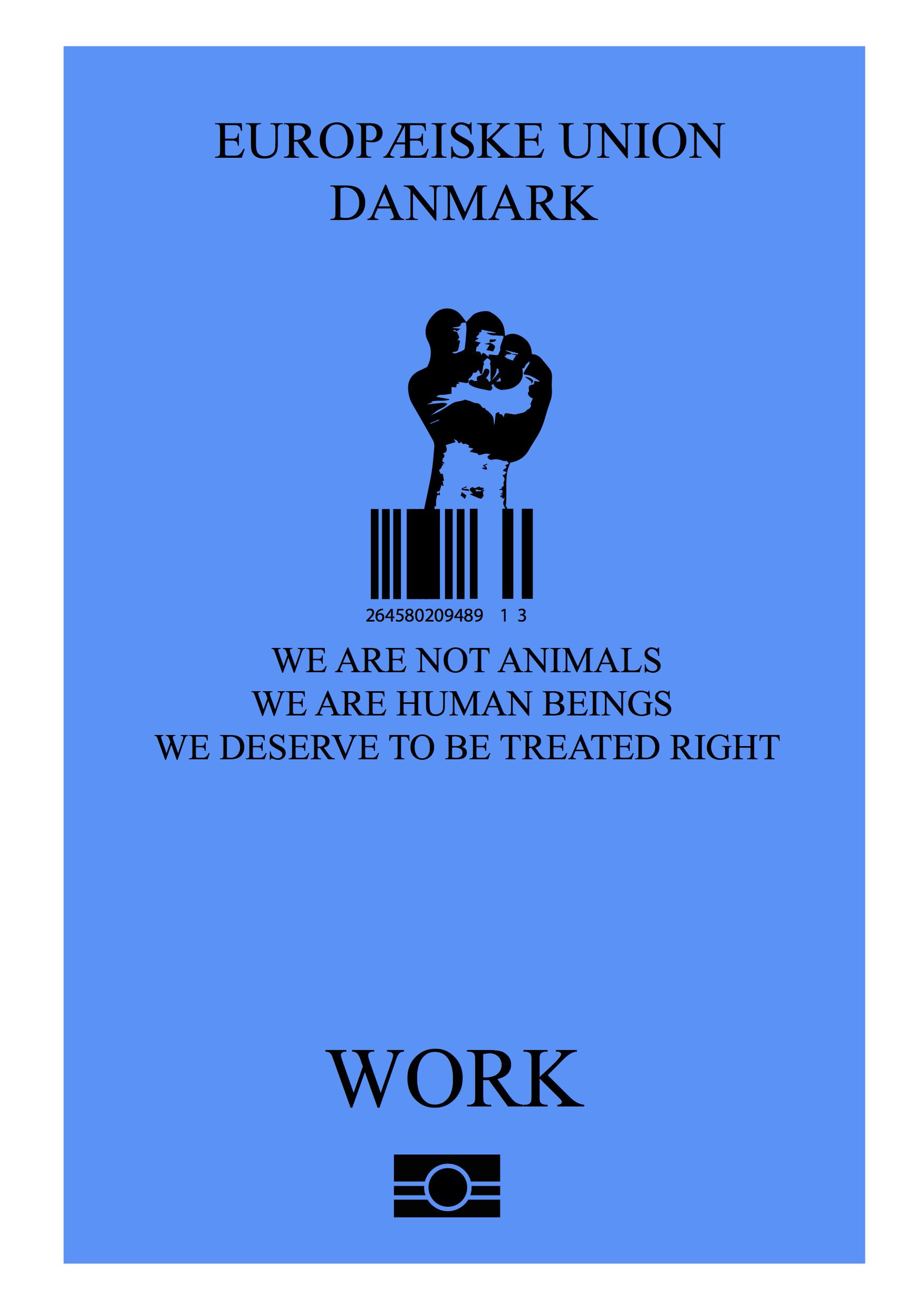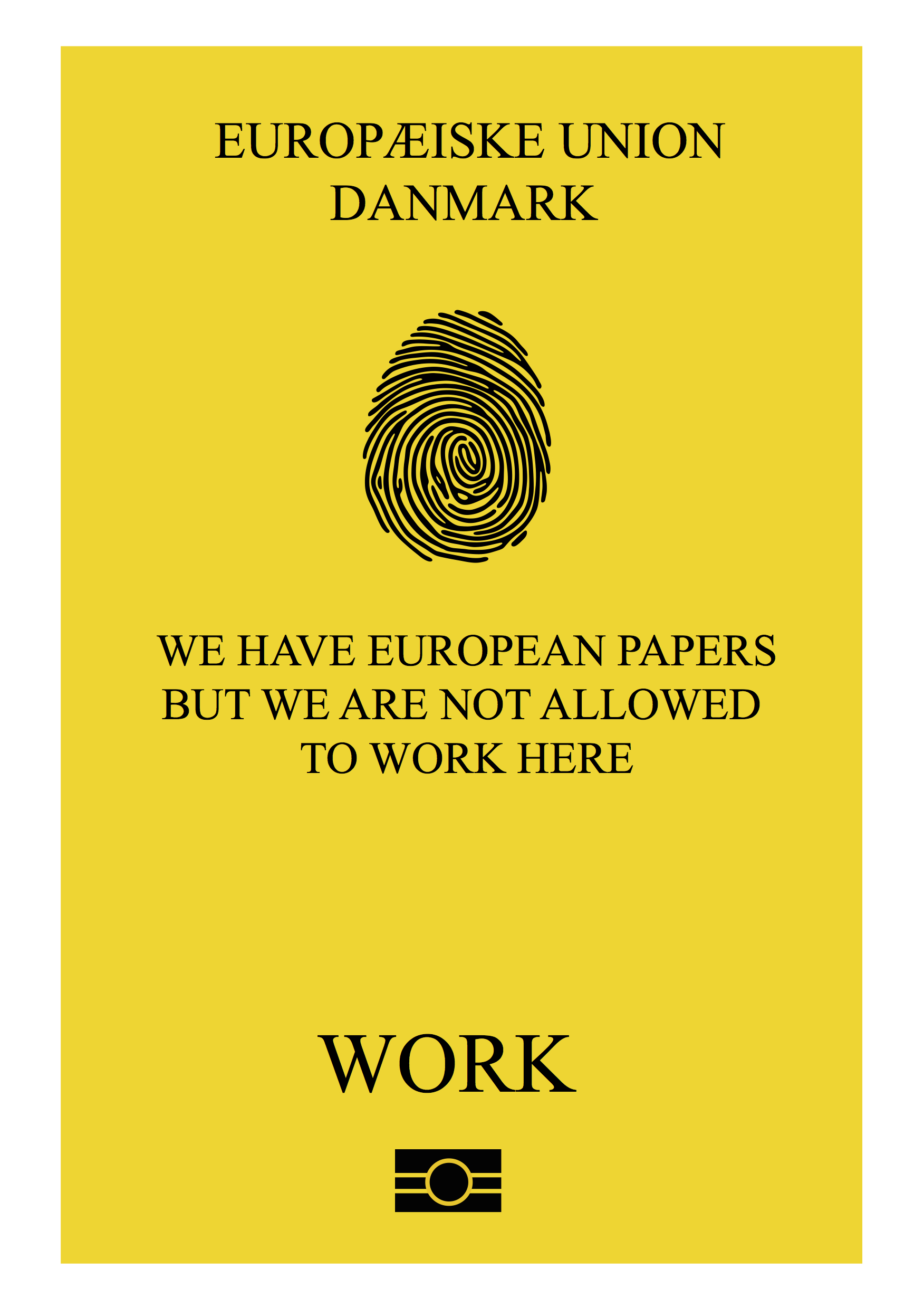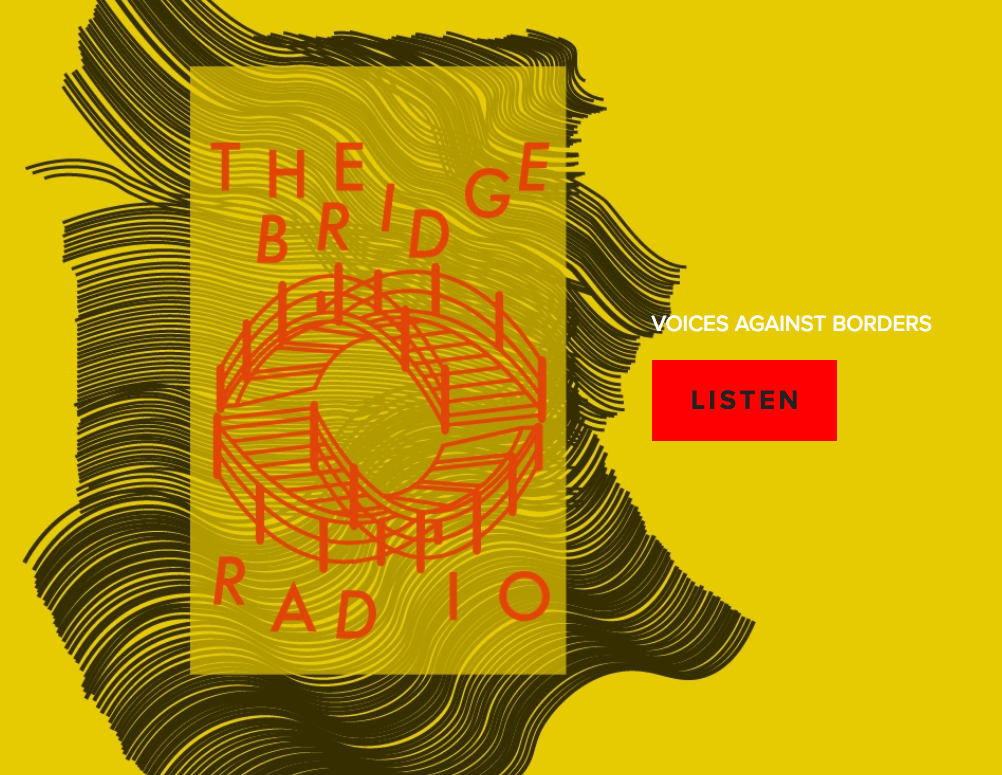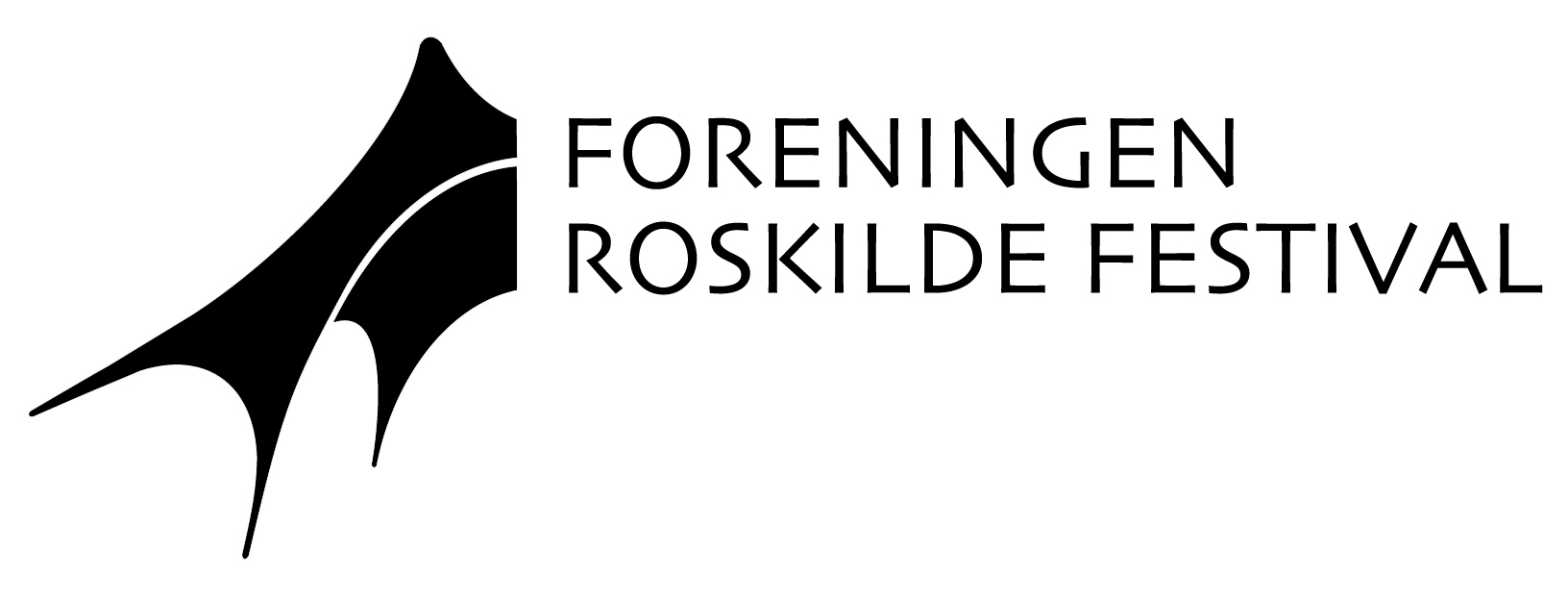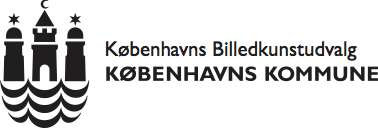Intro
Economy of Migrant Labor – for the Right to Work is a solo exhibition by the transnational radio collective The Bridge Radio that examines the precarious living conditions for migrant workers in Denmark and their struggles for rights.
The exhibition presents a reworking of a sound installation that the collective made for Roskilde Festival 17, the largest music festival in Northern Europe, together with a group of 12 people, who have asylum status, residence permits, and homes in Southern Europe, but often end up living on the street in Copenhagen in their search for some kind of work.
The exhibition
Economy of Migrant Labor – for the Right to Work takes the form of a large soundscape that presents recorded statements by each of the 12 collaborators accompanied by graphic works on the walls. Listening to their statements, it becomes clear that all of the collaborators have been granted asylum in Southern Europe, but that they have been forced to migrate north to look for work due to the economic crisis and high unemployment in Southern and Eastern Europe. Their asylum status allows them to travel in the Schengen area to Denmark on a tourist visa, but it does not grant them a Danish work permit and access to medical treatment or social assistance. So many have been forced to become day laborers or to sustain their livelihood by collecting empty bottles and cans in parks and streets that can be returned for a recycling refund of 1–3 DKK (25–50 US cents).
Economy of Migrant Labor – for the Right to Work takes the form of a large soundscape that presents recorded statements by each of the 12 collaborators accompanied by graphic works on the walls. Listening to their statements, it becomes clear that all of the collaborators have been granted asylum in Southern Europe, but that they have been forced to migrate north to look for work due to the economic crisis and high unemployment in Southern and Eastern Europe.
While their asylum status allows them to travel in the Schengen area to Denmark on a tourist visa, it does not grant them a Danish work permit and access to medical treatment or social assistance. So many have been forced to become day laborers or to sustain their livelihood by collecting empty bottles and cans in parks and streets that can be returned for a recycling refund of 1–3 DKK (25–50 US cents).
The exhibition discloses the racism and police violence that these people are regularly exposed to and unveils a life without social security. But, as The Bridge Radio states, “the pieces of conversations […] also bring to light a real struggle to organize against the exploitation of the precarious but important work done by migrants all over Europe."
CAMP’s invitation to The Bridge Radio is based on the collective’s outstanding work that reaches out to and cultivates community with some of the most marginalized groups of people within the Danish society. Their lengthy radio montages look at the power structures regulating human migration from the standpoint of those who know the system from the bottom-up, inside-out: people in asylum centers and deportation camps, people migrating around Europe to look for work. Making their montages available online, The Bridge Radio is compiling an exceptionally important archive that records and disseminates the voices of these people and their readings of how power works in a nation and a society like the Danish.
Overall, Economy of Migrant Labor – for the Right to Work discloses how borders do not only exclude certain groups of people but that they also create a violent form of inclusion, which subordinates certain groups of people and creates a labor power that is subordinated (De Genova, 2013). Labor mobility has always been a crucial field of struggle since one of the principal means by which capital exercises control over labor is by attempting to harness and channel its movement and flight (Mezzadra & Neilson, 2013).
Events & Education program
The exhibition runs from January 19 – May 19, 2018. It is accompanied by the discussion event For the Right to Work: A panel discussion on organizing migrant work on March 2, 2018, where audiences can partake in a live radio transmission discussion about migrant workers' struggle for work permits.
A free online exhibition catalog can be downloaded here in English or Danish. The catalog contains an essay and illustrations by The Bridge Radio and an essay by migration activist Jose Arce.
Both the exhibition and the event are curated by The Bridge Radio and make up the last exhibition project in CAMP’s exhibition series Migration Politics. In six exhibitions, artists from all over the world have been looking at what forces people to flee, how borders attempt to keep people out, what life is like in refugee camps and asylum centers, and what happens to those who get deported by force.
With the final exhibition in the series, we want to focus on people who have migrated to Denmark, but are living outside any system and are without any social security – an invisibilized population.
About The Bridge Radio
The Bridge Radio is an independent radio collective created by people who are migrants and non-migrants. We produce radio about migrant struggles, the border regime, and people’s movements. The radio strives to support self-organization among people, who live without European citizenship, and to create a wide group of reporters. While staying critical towards the dominant discourse on asylum and migration, The Bridge Radio aims to share information around the current developments related to the asylum- and migration regime, striving to spread the stories of people who have experienced migration and stories about the struggle for the freedom of movement.
The Bridge Radio started in 2015 as a protest against the repressive migration regime in the EU. Today, border and migration issues are visible in the public debate, but they are rarely presented from the perspective of those in movement or those who are experiencing the asylum system themselves. The Bridge Radio finds it essential to never stay silent about what is happening on EU’s borders and in places of detention. It is only by raising our voices that change can happen.
The exhibition is generously supported by Foreningen Roskilde Festival / Konsthall C / Københavns Billedkunstudvalg.




